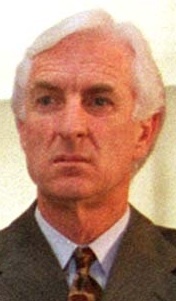The Maine State Chamber of Commerce and the Maine Development Foundation have released a report that identifies top economic issues facing Maine, from high health care and energy costs to the challenges of an aging population, and makes a series of recommendations on how to deal with them.
The two groups have presented the “Making Maine Work” report to the five candidates running for governor. Leaders from the groups are holding meetings around the state starting this week to talk about the report. They plan on holding forums with each of the gubernatorial candidates as well.
The idea, said Dana Connors, executive director of the state chamber, is to provide the next governor and Legislature with a report that details problems that require long-range solutions. presenting the information to candidates and people around the state, the ideas in the report may become part of the campaign debates and dialogue, Connors said.
And while he acknowledged that the problems identified in the report aren’t new, they haven’t been solved yet, either.
“The last thing we should be doing is ignoring the issues that still haunt us,” he said.
The report is the result of about a year of work, and is built on past reports and on answers from 1,100 businesspeople in Maine who identified their barriers to growth. It points to several core issues: Maine’s aging population, the cost of health insurance and energy, the level of taxation and regulation, and transportation problems.
The fact that Maine’s population is largely stagnant, and that one-quarter of its citizens will be over 65 by 2030, makes the problems even more challenging, said Laurie Lachance, president and chief executive officer of the Maine Development Foundation.
“We’re growing so slowly now, we’re not going to grow out of these issues,” she said.
The report made 12 recommendations.
On health care, it suggested challenging Maine’s health care leaders to reduce annual increases in spending below the national average each year; using wellness programs, education and incentives to improve residents’ health; and using state government’s purchasing power to encourage best health care practices.
On energy, the groups suggest attempting to cut costs short-term while diversifying sources ong-term. Short term, it lists options such as using energy-efficient technology, supporting time-of-day pricing options, promoting a liquified natural gas terminal in Washington County, and negotiating with Canadian companies for favorable rates in return for transmission lines through Maine.
On taxes and regulation, the report suggests continuing work on tax reform, though recent efforts were overturned by voters. For regulatory reform, “the first thing a new governor must do is to change the bureaucratic culture in Augusta, so that regulators see their jobs as helping Maine people and Maine businesses succeed.”
The groups call for an integrated state approach to education, with a global budget to cover all education spending. And they support “lifelong learning among all age groups.”
The report encourages work with the region’s governors and premiers, and groups such as Maine & Co. and the Maine International Trade Center, to connect Maine businesses and research institutions with potential partners beyond state boards.
The report pushes for a “better funding mechanism” for transportation, and encourages private investment in the telecommunications infrastructure. It supports efforts to conserve landmark places and vistas in Maine, and to invest in “Main Streets” as well.
And it suggests the state “should do all within its power to increase capital access for Maine businesses.” Specifically, the report says state and federal regulators should allow banks more flexibility in assessing business credit risks. The state should issue bonds for the Finance Authority of Maine and other groups to turn into business loans, the report suggests.
Getting the business community involved in the process to push these solutions was important, said Connors. Without that involvement, any solutions will fall victim to politics, he said, and the state won’t move forward.
“The past will repeat itself,” he said.
Staff Writer Matt Wickenheiser can be contacted at 791-6316 or at: mwickenheiser@pressherald.com
Copy the Story Link
Send questions/comments to the editors.



Success. Please wait for the page to reload. If the page does not reload within 5 seconds, please refresh the page.
Enter your email and password to access comments.
Hi, to comment on stories you must . This profile is in addition to your subscription and website login.
Already have a commenting profile? .
Invalid username/password.
Please check your email to confirm and complete your registration.
Only subscribers are eligible to post comments. Please subscribe or login first for digital access. Here’s why.
Use the form below to reset your password. When you've submitted your account email, we will send an email with a reset code.